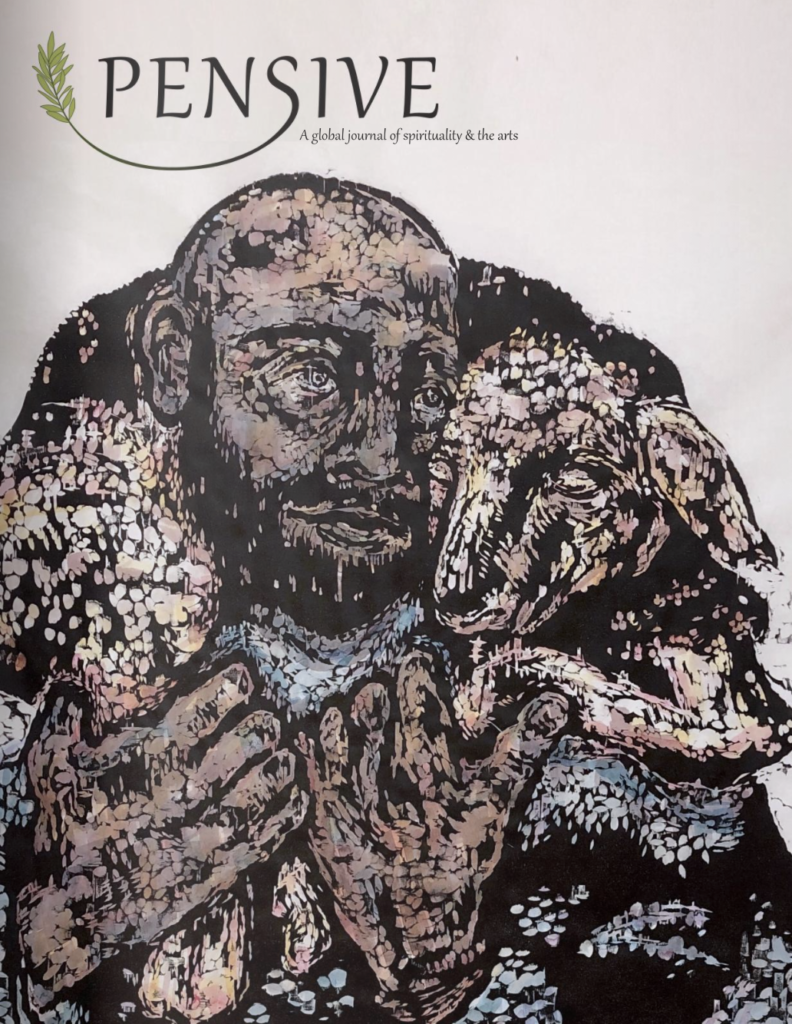
February was Black History month, and the CSSH community was busy remembering ancestors, recognizing challenges, celebrating progress, and planning the future. While many events took place as panels, important keynotes, and video screenings, Pensive Journal Co-Editor Jayla Tillison imagined a different way to celebrate the month. With the New England Poetry Society, she organized a virtual poetry reading and Q&A.
“February is truly a time to embrace intersectionality and in my opinion there is no better way than to express that than through the arts.”
Jayla Tillison
Tillison is a second-year Civil Engineering and Architectural Studies major. In high school, she worked on art and literature magazines. Now at Northeastern, she is an essential member of Pensive’s editorial team. Pensive: A Global Journal of Spirituality and the Arts is a literature journal published bi-annually by the Center for Spirituality, Dialogue, and Service (CSDS). Pensive focuses on work that confronts structural oppression and expresses a range of spiritual perspectives.
This past summer, and the accompanying swell of support for the Black Lives Matter movement, Pensive received many submissions that focused on the Black experience. Tillison saw Black History Month as an opportunity to highlight some of these submissions.

The event featured six speakers. Huda Khwaja, a law student at NU, presented her poem dedicated to graduating student activists, noting “[she] and her friends could not imagine leaving their college extracurriculars because they were so involved in social justice organizations.” Laith Matari wrote one poem in the beginning of quarantine to meditate on feelings of dislocation and connection. Myles McCollum’s poem was titled, “Misogynoir,” a term coined by Moya Bailey. He wrote from a “state of frustration” about the treacherous past of slavery. He also presented a poem on capital punishment, which reflected on the ways that the government kills innocent black men.
Russell Nichols wrote a poem on state violence—as well as a piece that celebrated the potential of safe havens. He wrote about 19 families who purchased 97 acres of land to create a space for black families. The families represented hope for Nichols, who commented that one of the greatest tools against oppression is imagination.
I have the right to remain silent
But not the right to remain.
Russell Nichols
Chinma Nnadozie-Okananwa’s poem took the form of a letter to her sister on the violence of white supremacy’s effect on beauty standards. This was followed by a poem reflecting on her parents and their relationships to spirituality and religion. Matthew Taylor spoke on the necessity of writing during times of racial inequality and violence. Later, he recited a prayer he had written in response to deaths connected with police violence, domestic terrorism, and lacking healthcare.
Tillison was thrilled with the success of the event and noted that its virtual structure allowed interactions that might not have happened in person. Usually, she remarked, audience members have to wait for the end of a poem to react, but in Zoom people could “throw support to performers during the performance.” Likewise, Poet Mathew Taylor capitalized on the virtual format by opening with a dedication to his matrilineal lines and invited audience members to invite their own matriarchs in the chat.
The poetry reading was followed by a Q&A session led by Pensive website editor, Ben Rubin. The session gave audience members to reflect upon the themes expressed in the performances and highlighted the inspirations of the poets.



